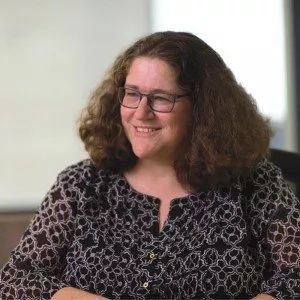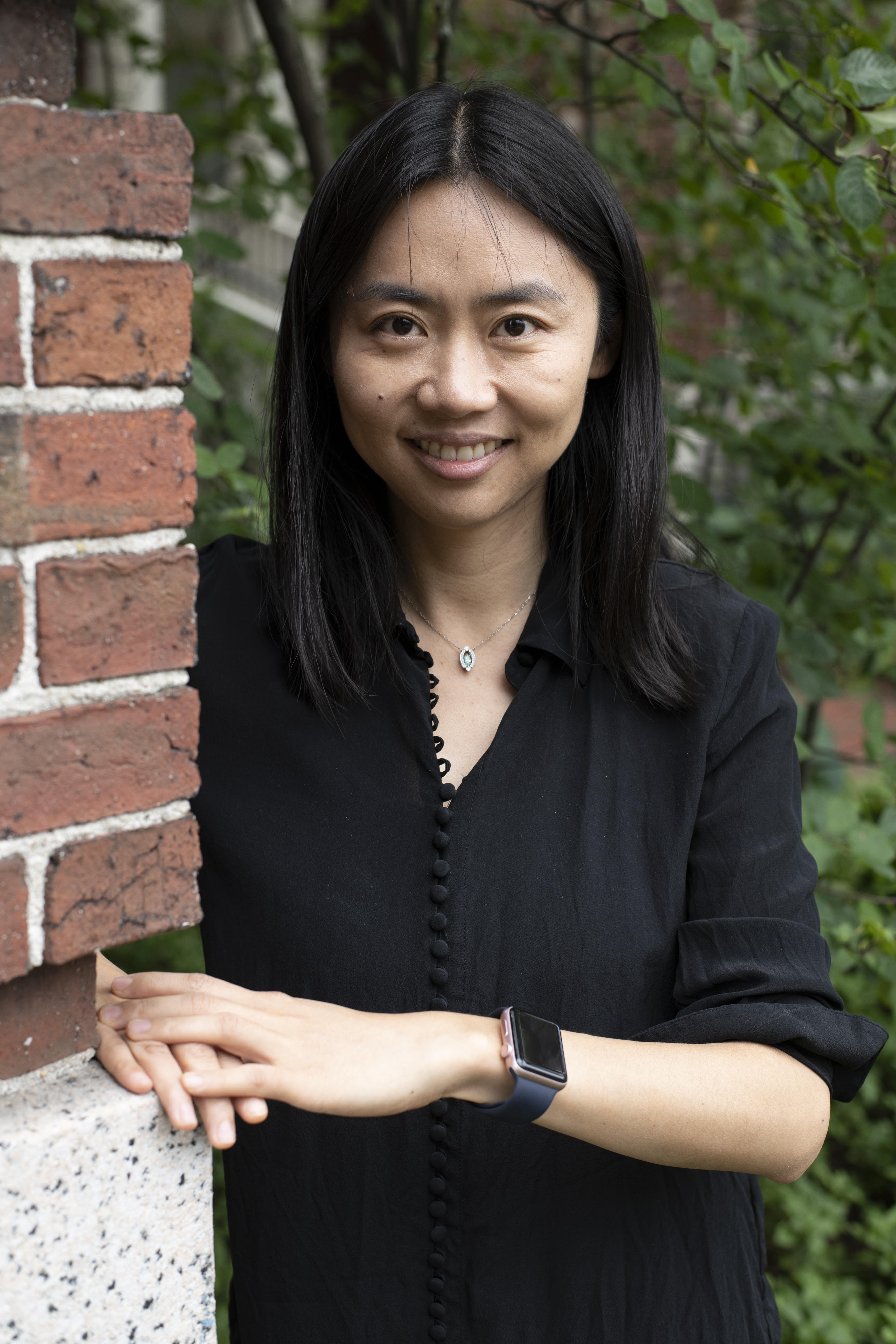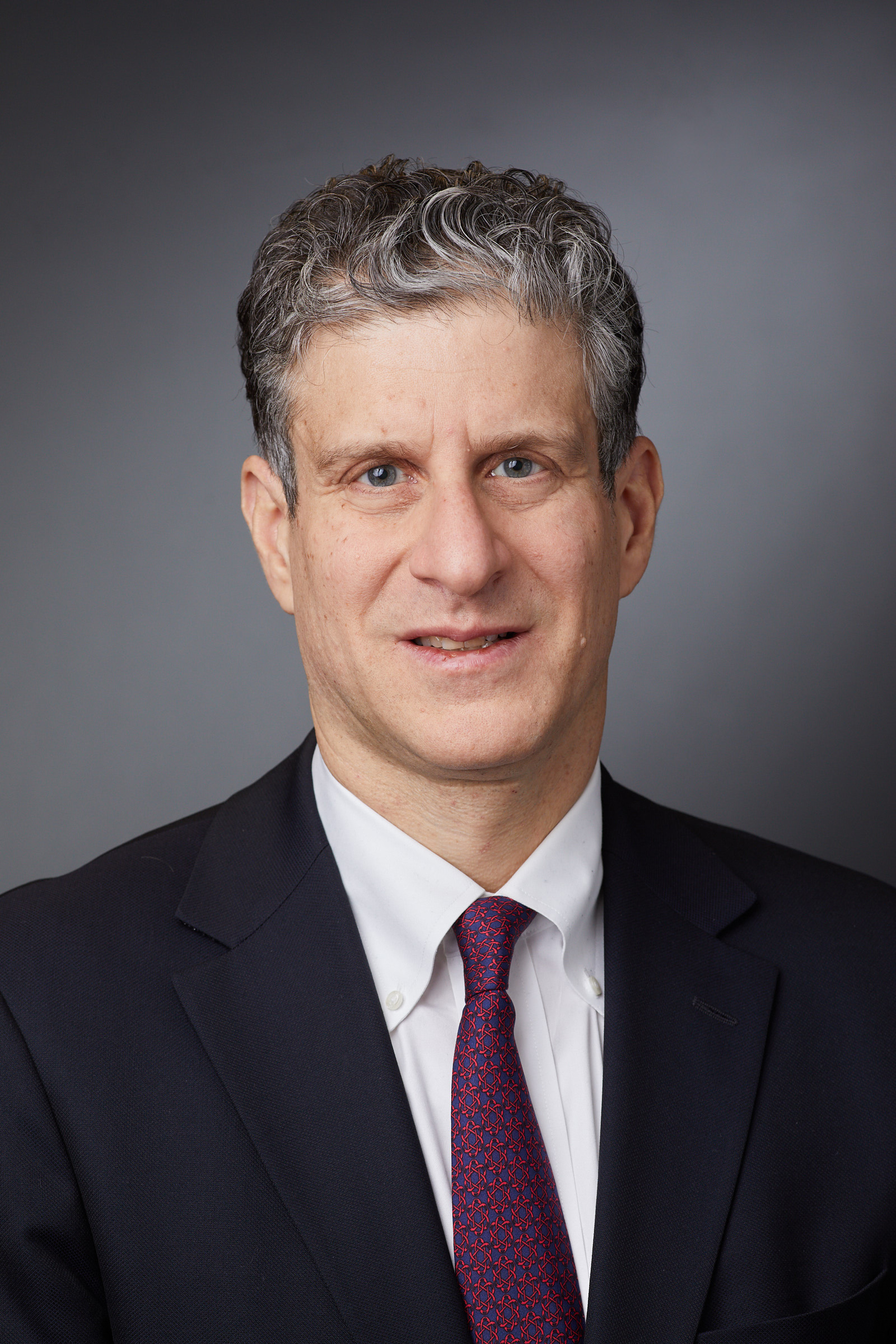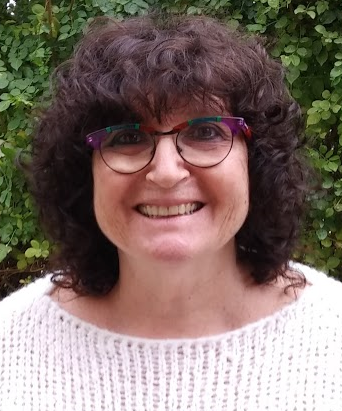External Reviewers
Rosa Aghdam,School of Biological Sciences, Institute of fundamental sciences (IPM)
Constantin Ahlmann-Eltze,EMBL Heidelberg
Omar Ahmed,Johns Hopkins University
Kyle Akers,Virginia Polytechnic and State University
Mohammad Al Olaimat,University of North Texas
Jarno Alanko,University of Helsinki
Nico Alavi,Max Planck Institute for Molecular Genetics
Blessy Antony,Virginia Polytechnic Institute and State University
Faisal Bin Ashraf,University of California, Riverside
Shamim Ashrafiyan,Goethe University Frankfurt
Jennifer Asmussen,Baylor College of Medicine
Behrooz Azarkhalili,Sharif University of Technology
Fatemeh Baghdadi
Tavor Baharav,Stanford University
Ali Tugrul Balci,University of Pittsburgh
Philip Baldassari,Temple University
Sean Bankier,University of Bergen
Sina Barazandeh,Bilkent University
Márcia Barros,Faculty of Sciences, University of Lisbon
Jakub Bartoszewicz,Hasso Plattner Institute
Fritz Bayer,ETH Zürich
Emmanuelle Becker,IRISA / University of Rennes 1
Fatemeh Behjati Ardakani,Uniklinikum and Goethe University Frankfurt
Eugeni Belda,Institut de Recherche pour le Developpement (IRD)
Caroline Belser,Genoscope
Philipp Benner,Max Planck Institute for Molecular Genetics
Jamie Bennett,Icahn School of Medicine at Mount Sinai
Evi Berchtold,Ludwig Maximilian University of Munich
Rupa Bhowmick
Ben Bimber,Oregon Health & Science University
Luka Borozan,J.J. Strossmayer University of Osijek, Department of Mathematics
Aritra Bose,IBM
Matthew Brendel,Cornell University
Helene Bret,CEA saclay
Galadriel Brière,AMU - I2M - MMG
Diyue Bu,Indiana University Bloomington
Doruk Cakmakci,McGill University
Kai Cao,Academy of Mathematics and Systems Science, Chinese Academy of Sciences
Arnab Chakrabarti,RWTH Aachen University
Sakshar Chakravarty,University of California, Riverside
Hanrong Chen,Genome Institute of Singapore
Nae-Chyun Chen,Exai Bio
Shuyang Chen,University of Wisconsin-Madison
Karishma Chhugani,University of Southern California
Uthsav Chitra,Princeton University
Yongin Choi,University of California, Davis
Saket Choudhary,University of Southern California
Carolina Chung
Davide Cirillo,Barcelona Supercomputing Center
Andrew Cirincione,Icahn School of Medicine at Mount Sinai
Ivan Costa
Jasmin Coulombe-Huntington,McGill University
Fernando Hugo Cunha Dias,University of Helsinki
Fabiola Curion,Technical University of Munich, Helmholtz Zentrum München
Pawel Czyz,ETH Zurich
Raghuram D R,University of Bielefeld
Alister D'Costa,Ontario Institute for Cancer Research
Ning Dai,Oregon State University
Supratim Das,Indian Institute of Science Education and Research - Pune
Fernando Miguel Delgado Chaves,Institute for Computational Systems Biology
France Denoeud,Genoscope, CEA/Université Paris-Saclay
Alice Descoeudres,Gene center LMU Munich
Aboud Diab,Simon Fraser University
Diego Diaz,University of Chile
Yi Ding,Stanford University
Meleshko Dmitrii,enter for algorithmic biotechnologies, SPbSU
Natnatee Dokmai,Indiana University Bloomington
Gabriel Dolsten
Daria Doncevic
Sergio Doria,BSC
Yoann Dufresne,Institut Pasteur
Jorge Duitama,Universidad de los Andes
Kai Dührkop,Friedrich-Schiller-University Jena
Shane Elder,Carnegie Mellon University
Li Fang,Children's Hospital of Philadelphia
Peiyuan Feng,Tsinghua University
Mathew Fischbach,University of MInnesota
Yilei Fu,Rice University
Qiang Fu,Sciensano
Lara Fuhrmann,ETHZ
Yang Gao,Zhejiang University
Carlos Garcia-Hernandez,Barcelona Supercomputing Center
Johannes Gawron,ETH Zürich
Ali Ghaffaari,Bielefeld University
Krzysztof Gogolewski,Institute of Informatics, University of Warsaw
Daniel Gonçalves,IDMEC/IST
Assaf Gottlieb,School of Biomedical Informatics, UTHealth
Ellie Haber,Carnegie Mellon University
Armin Hadziahmetovic,LFE Bioinformatik LMU
Maryam Haghani,Computer science department, VirginaTech
Tom Aharon Hait,Tel Aviv university
Yuhan Hao,New York Genome Center
Ananth Hari,University of Maryland
Lincoln Harris,University of Washington
Austin Hartman,New York Genome Center
Michael Hartung,University of Hamburg
Ramin Hasibi,University of Bergen
Arshia Hassan,University of Minnesota
Dennis Hecker,Goethe University Frankfurt
Soroor Hediyeh-Zadeh,Institute of Computational Biology - Helmholtz Zentrum Muenchen
Matthias Heinig,Max-Planck-Institute for molecular genetics
Demetrius Co-Review Hernandez,The University of Texas at El Paso
Quang Minh Hoang,Carnegie Mellon University
Ermin Hodzic,Simon Fraser University
Nils Hoffmann
Jan Hoinka,NCBI, NIH
Tanja Holstein,Bundesanstalt für Materialforschung
Liang Hong,The Chinese University of Hong Kong
Yuhui Hong,Indiana University
Rob Hooft,Dutch Techcentre for Life Sciences
Kangcheng Hou,University of California, Los Angeles
Dewei Hu,Novo Nordisk Foundation Center for Protein Research, University of Copenhagen
Hongru Hu,University of California Davis
Jian Hu,Emory University
Ruifeng Hu,UTHealth-Houston
Zhihang Hu,CUHK
Tianyang Huang
Alissa M. Hummer,Department of Statistics, University of Oxford
Linh Huynh,UCD
Martin Hölzer,Robert Koch Institute
Junichi Iwakiri,The University of Tokyo
Laurent Jacob,CNRS
Shani Jacobson,Tel Aviv University
Elham Jafari,INDIANA UNIVERSITY
Aleksander Jankowski,University of Warsaw
Anupama Jha,University of Washington
Minxue Jia,University of Pittsburgh
Markus Joppich,Ludwig Maximilian University of Munich
Akshay Juyal,Georgia State University
Sandeep Kambhampati,Harvard University
Mostafa Karimi,Amazon.com
Nikoletta Katsaouni,Institute of Cardiovascular Regeneration
Panagiotis Katsonis,Baylor College of Medicine
Farah Zaib Khan,Australian Biocommons
Mariyam Khan,University of Bergen
Parsoa Khorsand,University of California, Davis
Bryce Kille,Rice University
Yejin Kim,University of Texas Health Science Center at Houston
Alexandra Kolodyazhnaya
JungHo Kong
Tomasz Kosciolek,Jagiellonian University in Kraków
Thomas Krannich,Robert Koch Institute
Fleming Kretschmer
Gregory Kucherov,CNRS/LIGM
Halil Ibrahim Kuru,Bilkent Universtiy
Doyoung Kwak,Texas A&M
Zlatko-Salko Lagumdzija,University of Maryland College Park
Kaari Landry,University of Manitoba
Sanghoon Lee
Yoonkyu Lee,University of Minnesota
Ingoo Lee,School of Medicine, University of California at San Diego
Yipin Lei,Silexon
Marta Lemanczyk,Hasso-Plattner-Institute at University of Potsdam
Hagai Levi,Tel Aviv University
Dongshunyi Li,Carnegie Mellon University
Gang Li,University of Washington at Seattle
Guangyuan Li,Cincinnati Children's Hospital Medical Center
Hechen Li,Georgia Institute of Technology
Heng Li
Heng Li,Dana-Farber Cancer Institute; Harvard Medical School
Mengzhen Li,Case Western Reserve University
Pengyuan Li,IBM Research
Ruoxin Li,University of California, Davis
Shuang Li,Ludwig Maximilian University of Munich (LMU)
Wei Vivian Li,University of California, Riverside
Weiling Li,Weill Cornell Medicine
Xiang Li,Pennsylvania State University
Yan Chak Li,Icahn School of Medicine at Mount Sinai
Zhijian Li,Broad Institute of MIT and Harvard
Shaoheng Liang,UT MD Anderson Cancer Center
Zhirui Liao,Fudan University
Jeanine Liebold,Universität Hamburg
Arnaud Liehrmann,Université Paris-Saclay
Dawei Lin
Lynn Lin,Duke University
Xing Liu,BGI-Shenzhen
Xinhao Liu,Princeton University
Ziyu Liu,Royal Melbourne Institute of Technology
Xinyang Liu
Junyan Lu,University Hospital Heidelberg
Adriaan Ludl,Universitet i Bergen
Marcus Ludwig,Friedrich Schiller University Jena
Xiang Ge Luo,ETH Zurich
Xiao Luo,Bielefeld University
Cong Ma,Princeton University
Wenjing Ma,Emory University
Xiaojun Ma,University of Pittsburgh
Sita Sirish Madugula
Hugo Magalhães,Heinrich Heine University, Institute for Medical Biometry and Bioinformatics
Andreas Maier,Institute for Computational Systems Biology (Cosy.Bio) - University of Hamburg
Muhammad Ammar Malik,University of Bergen
Noel Malod-Dognin,University College London
Astrid Manuel,University of Texas Health Science Center
David Marciano,Baylor College of Medicine
Sergei Margasyuk,Skolkovo Institute for Science and Technology
Alexander Martinez Fundichely,WCM
Nuno Martinho,IST-IBB
Zachary McCaw,Harvard University
Alan Medlar,University of Helsinki
Katarina Mihajlovic,Barcelona Supercomputing Center
Marianna Milano,università magna graecia catanzaro
Gutama Ibrahim Mohammad,University of Bergen
Fatemeh Mohebbi,Georgia State University
Amirsadra Mohseni,University of California, Riverside
Yasser Mohseni Behbahani,Sorbonne Université
Arnau Montagud,Barcelona Supercomputing Center (BSC)
Pablo Monteagudo,Ludwig-Maximilians-Universität München (LMU)
Cecile Moulin,INRAE
Marcin Możejko,University of Warsaw
James Nagai,Institute for Computational Genomics, RWTH University Hospital
Sayyed Ahmad Naghavi Nozad,Bilkent University
Sourena Naser Moghaddasi,University of Victoria
Seyednami Niyakan,Texas A&M University
Esmaeil Nourani,Azarbaijan Shahid Madani University
Daniel Novikov,Georgia State University
Robert Nowak,Warsaw University of Technology, Institute of Computer Science
Yannek Nowatzky
Melania Nowicka,Freie Universiteat Berlin
Iker Nuñez,Barcelona Supercomputing Center
Johan Nystrom-Persson,JNP Solutions
Felix Offensperger
Cerag Oguztuzun,Case Western Reserve University
Sofiane Ouaari,University Tübingen
Mhaned Oubounyt,chonbuk national university
Xinhai Pan,Georgia Institute of Technology
Suman Pandey
Sungjoon Park,UC San Diego
Tae Yoon Park,Princeton University
Saeid Parvandeh
Antoine Passemiers,KU Leuven
Yesha Patel,University of Southern California
Eric Pederson,University of Massachusetts Amherst
Kerui Peng,University of Southern California
Xingang Peng,Tsinghua University
Rafael Peres da Silva, National University of Singapore, Singapore
Mauricio Perez,Genome Institute of Singapore - A*STAR
Mihaela Pertea
Nadia Pisanti,University of Pisa
Daniel Platt,IBM
Miguel Ponce de Leon,Barcelona Supercomputing Center
Stephanie Portillo
Niklas Probul,Computational Biology
Guillermo. Prol Castelo
Taneli Pusa,Aalto University
Yue Qin,University of California San Diego
Yutong Qiu,Carnegie Mellon University
Daniele Raimondi,Katholieke Universiteit Leuven
Félix Raimundo,Google
Suraj Rajendran,Weill Cornell Graduate School
Koushul Ramjattun
Nimrod Rappoport,Tel Aviv University
Milong Ren
Shaogang Ren,Texas A&M Unviersity
Yihui Ren
Jubair Ibn Malik Rifat,University of North Texas
Sarah Robinson,University of Oxford
Sandra Romain,INRIA
Stefano Roncelli,Novo Nordisk Foundation Center for Protein Research
Cynthia Ronkowski,University of Southern California
Krishna Roskin,Cincinnati Children's Hospital Medical Center
Kevin Rupp,ETH Zurich
Ben Rush
April Sagan
Bikram Sahoo,GSU
Justin Sanders,University of Washington
Nicolae Sapoval,Rice University
Sinem Sav,EPFL
Castrense Savojardo,University of Bologna
Leah Schaffer,University of California, San Diego
Johannes Schlüter,Universität Bielefeld
Lancelot Seillier,RWTH Aachen University Clinic
Saleh Sereshki,University of California Riverside
Kishwar Shafin,Google LLC
Mina Shaigan,Institute for Computational Genomics, RWTH University Hospital
Pramesh Shakya,University of Central Florida
Elham Shamsara,Department of Computer Science, University of Tübingen
Nitesh Kumar Sharma,University of Southern California
Jim Shaw,University of Toronto
Yihang Shen,Carnegie Mellon University
Yoshihiro Shibuya,Université Paris-Est Marne-la-Vallée
Neda Shokraneh,Simon Fraser University
Moustafa Shokrof,University of California Davis
Hantao Shu,Tsinghua University
Li Shuya,Tsinghua University
Juliana Silva Bernardes,UMR 7238 CNRS Biologie Computationnelle et Quantitative
Haris Smajlovic,University of Victoria
Johannes Soeding,Max Planck Institute for Multidisciplinary Sciences
Nataliya Sokolovska,Sorbonne University, INSERM, NutriOmics
Arda Soylev,Heinrich Heine University Düsseldorf
Ana Stanescu,Department of Computer Science, University of West Georgia
Benjamin Strober,Havard School of Public Health
Alexander Strzalkowski,Princeton University
Yiqi Su,Virginia Tech
Hong Su
Junhao Su,University of Hong Kong
Amanda Sun
Paulina Szymczak,University of Warsaw
Ichigaku Takigawa,Hokkaido University
Nure Tasnina,Virginia Tech
Haotian Teng,Carnegie Mellon University
Jonathan Teo,A*STAR GIS
Goro Terai,The University of Tokyo
Tingzhong Tian,Tsinghua University
Yatish Turakhia,University of California San Diego
Petri Törönen,University of Helsinki
Varun Ullanat,Harvard Univeristy
Jens-Uwe Ulrich,Hasso Plattner Institute, University Potsdam
Ali Burak Unal,University of Tuebingen
Texas University,texas a&m university
David van Bruggen,Harvard University
Yashu Vashishath,University of North Texas
Mariia Vlasenok,Skolkovo Institute of Science and Technology
Lucy Vost,University of Oxford
Lacey Walker
Sarah Walker
Fangping Wan,Tsinghua University
Zhiyu Wan,Vanderbilt University Medical Center
Chen Wang
Hanchen Wang,Genentech & Stanford
Kun Wang
Wen Wang,University of Minnesota
Xingyan Wang,Penn State College of Medicine
Yihe Wang,University of North Carolina - Charlotte
Weidong Wang
Lucia Williams,Montana State University
Roland Wittler,Bielefeld University
Cas Wognum,Universiteit Utrecht
Sarah Wright
Yue Wu,UCLA
Stefan Wuchty,Univ. of Miami
Alexandros Xenos,Barcelona Supercomputing Centre
Guanjue Xiang,Data science department, Dana Farber Cancer Institute
Fangxiong Xiao
Lei Xie,Hunter College, The City University of New York
Chencheng Xu,Tsinghua University
Junyan Xu,National Cancer Institute
Chenling Xu,Triplebar
Duo Xu,Cornell University
Chao Yan,Vanderbilt UNIVERSITY
Hua-Ting Yao,Ecole Polytechnique
Melih Yilmaz,University of Washington
Kaan Yorgancioglu,Case Western Reserve University
Yuning You,Texas A&M University
Zheng Yuan,Alibaba DAMO Academy
Elizabeth Yuu,Hasso Plattner Institut
Carme Zambrana,Barcelona Supercomputing Center
Xiaofei Zang,Pennsylvania State University
Qiuhai Zeng
Haowen Zhang,Georgia Institute of Technology
Ran Zhang,University of Washington
Richard Zhang
Xiang Zhang,University of Minnesota
Xinru Zhang
Yang Zhang,Carnegie Mellon University
Yanlin Zhang,McGill University
Yujie Zhang,Harvard T.H. Chan School of Public Health
Ziqi Zhang,Georgia Institute of Technology
Liang Zhao,University of South Carolina
Xiaoyu Zhao,UCSD
Zhengqiao Zhao
Liang Zhao,University of South Carolina
Zhenxian Zheng,Department of Computer Science, The University of Hong Kong
Jingtian Zhou,UCSD
Qinghui Zhou,University of Victoria
Tianming Zhou,Carnegie Mellon University
Tianshuo Zhou,Oregon State University
Rui Zhu,Indiana University
Yingying Zhu,UTA
Houxiang Zhu,University of Chicago
Licheng Zong
Ozan Özışık,Yildiz Technical University
Hakime Öztürk,Boğaziçi University
 Dana Pe'er
Dana Pe'er



















 Jingyi Jessica Li
Jingyi Jessica Li Mark Gerstein
Mark Gerstein




